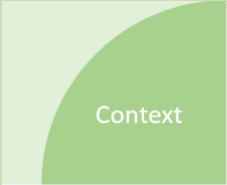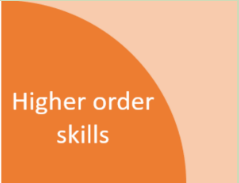PROFESSIONAL DEVELOPMENT MODULES
Teachers and volunteers in adult numeracy education can use the PD modules to improve the quality of the numerate behaviour of adult learners.
THE PD MODULES ADDRESS THE FOLLOWING ISSUES
- What competencies do adults need to be numerate in the future society? What mathematical knowledge and skills are necessary to become numerate? How to solve numeracy related issues, questions, and problems in real-life situations?
- How to teach numeracy in adult education? What competencies do teachers and volunteers need for teaching numeracy in adult education?
On-line modules
Below you find the list of the modules which are developed for on-line PD. The modules are structured in such a way they can be used also as on-line courses for self-study (like MOOCs). It is an attempt to systematically work towards improvement of the quality of teaching and better learning outcomes in adult numeracy education. The goal is to set up modules for teacher training that are usable for international use in European countries.
In each Professional Development module the relationship with the overarching framework (see below) will be described.
WHAT MATTERS TO IMPROVE NUMERATE BEHAVIOR?
Everyday life
Work-related
Citizenship
Further learning
Finances
Health and care
Recreation
Quantity and number
Dimension and shape
Patterns, relations & change
Data and chance
Using a calculator
Using spreadsheets
Using digital skills




Managing situations
Analysing situations
Processing information
Reasoning
Mathematising
Problem solving
Critical thinking
Self-confidence
Affection
Beliefs
Collaborations
Flexibility
Math anxiety
Math difficulties
The following modules are under construction and will published here before the end of 2023.
- Managing situations, analysing situations
- Processing information, Reasoning
- Mathematising, problem solving, modelling
- Critical thinking
- Self-confidence
- Affection, Beliefs
- Collaborations, Flexibility
- Math anxiety, Math difficulties
- Everyday life, Work-related, Citizenship, Further learning
- Finances
- Health and care
- Recreation
- Quantity and number, Dimension and shape, Patterns, relations & change, Data and chance
- Using a calculator, using spreadsheets, using digital skills
[learn_press_profile]